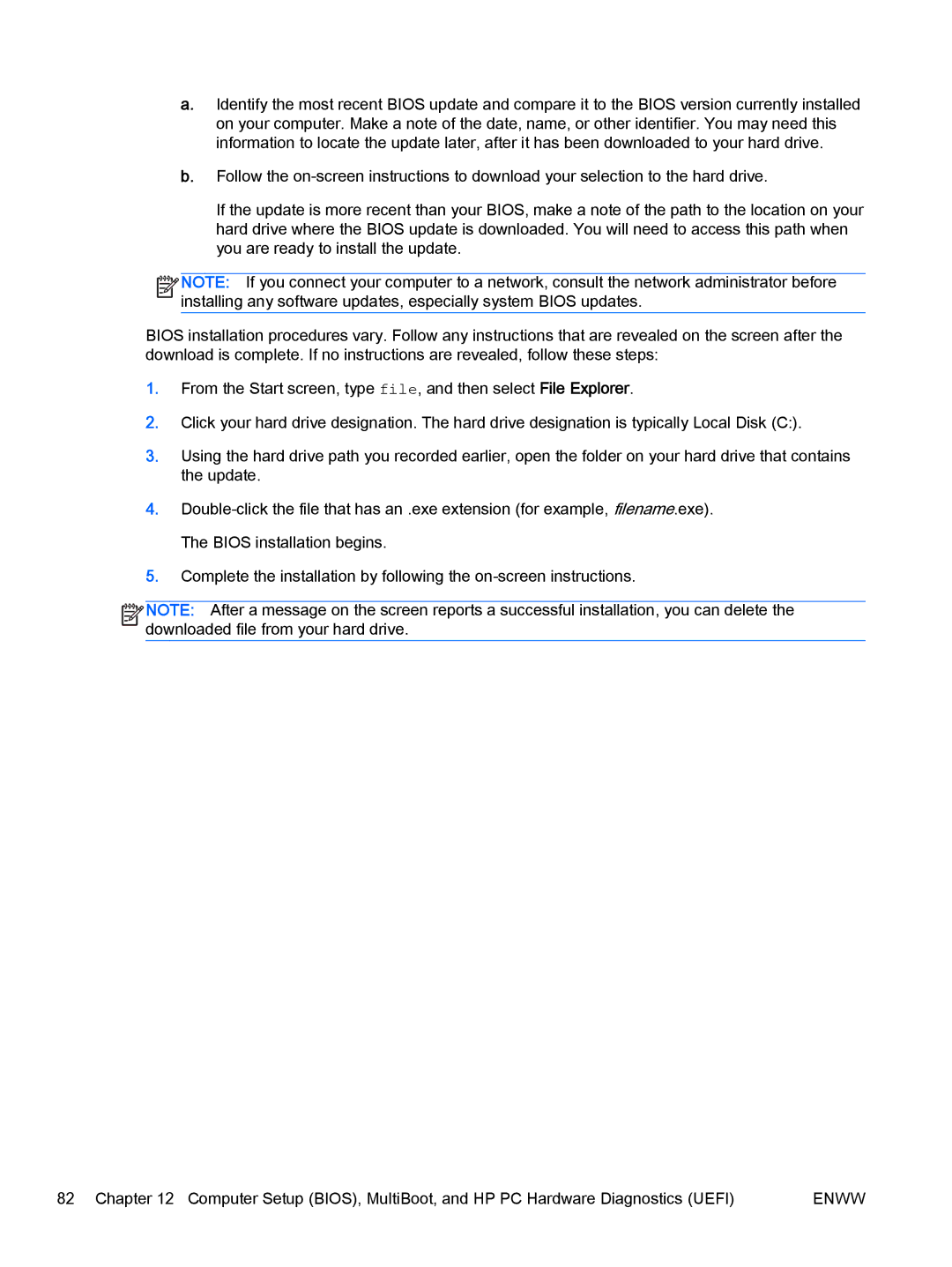
a.Identify the most recent BIOS update and compare it to the BIOS version currently installed on your computer. Make a note of the date, name, or other identifier. You may need this information to locate the update later, after it has been downloaded to your hard drive.
b.Follow the
If the update is more recent than your BIOS, make a note of the path to the location on your hard drive where the BIOS update is downloaded. You will need to access this path when you are ready to install the update.
![]()
![]()
![]()
![]() NOTE: If you connect your computer to a network, consult the network administrator before
NOTE: If you connect your computer to a network, consult the network administrator before ![]()
![]() installing any software updates, especially system BIOS updates.
installing any software updates, especially system BIOS updates.
BIOS installation procedures vary. Follow any instructions that are revealed on the screen after the download is complete. If no instructions are revealed, follow these steps:
1.From the Start screen, type file, and then select File Explorer.
2.Click your hard drive designation. The hard drive designation is typically Local Disk (C:).
3.Using the hard drive path you recorded earlier, open the folder on your hard drive that contains the update.
4.
5.Complete the installation by following the
![]()
![]()
![]()
![]() NOTE: After a message on the screen reports a successful installation, you can delete the
NOTE: After a message on the screen reports a successful installation, you can delete the ![]()
![]() downloaded file from your hard drive.
downloaded file from your hard drive.
82 Chapter 12 Computer Setup (BIOS), MultiBoot, and HP PC Hardware Diagnostics (UEFI) | ENWW |
